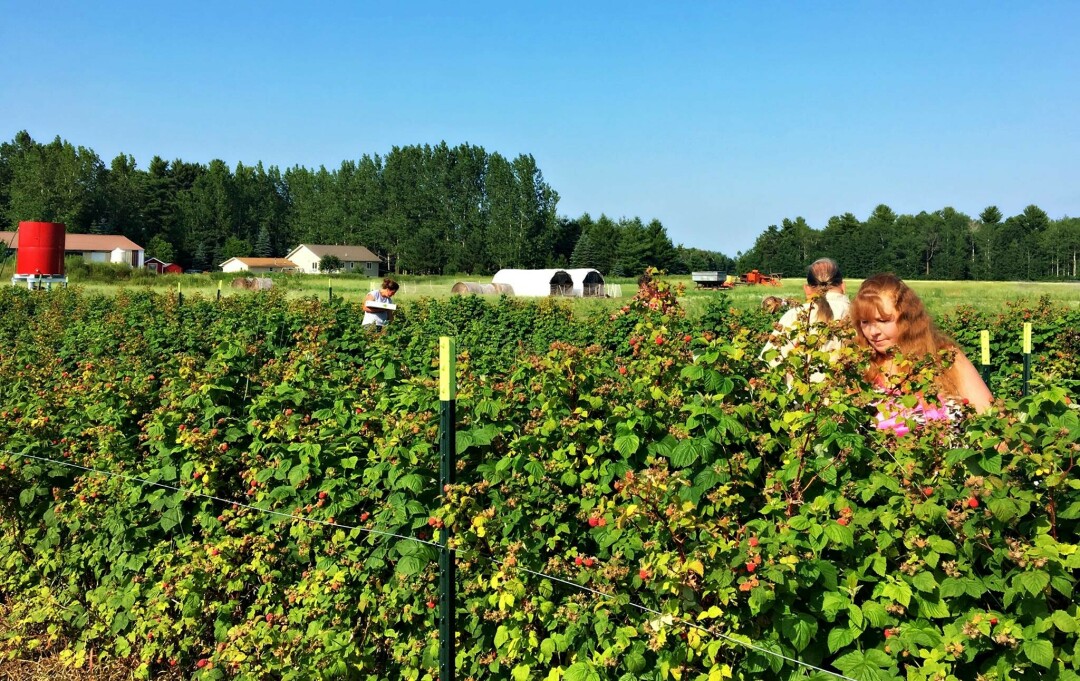News & Articles
Browse all content by date.

Wrenshall is a fascinating place on the edge of the Duluth/Superior area. It is also an important part of our local food economy. Let us dive deep into this place, by exploring two very different routes to Wrenshall.
To understand these routes you must know their relation to a pseudo-geographic rugged area I will call “hill country.”
Yes, I just made that up. I couldn’t find a “legit” geologist-approved name for the area and needed to get this done fast.
Hill country goes along Lake Superior through Duluth and then gets wider and straddles the St. Louis River. Much of this hill country is part of Jay Cooke State Park. The southwest corner of Jay Cooke actually comes up to Wrenshall’s city limits.
The quickest route is to take I-35 south. Coming from downtown Duluth we can imagine a Wrenshall (Community Supported Agriculture) CSA farm owner might be driving back home after dropping off the people’s weekly box of produce. CSAs make local farming more profitable and predictable by having a person agree to buy in advance the produce off a small piece of the farm, regardless of how good the yield is.
This optimistic and idealistic farmer (as I found CSA owners to be) smiles and takes this quickest way home because they are so busy this time of year. I-35 goes up the giant Thompson Hill just skirting the top of hill country. After Midway Road the hills end and not long after he exits and takes MN-45 through Carlton and then Highway 1 south. Soon he is in the Wrenshall area and can look left (east) and see the dense woods of hill country rising from the flat farms.
By the way, “In Wrenshall” probably means in 55797 Zip Code. Wrenshall city limits are much smaller.
If our traveler is, for example, Janaki Fisher-Merritt from the Food Farm, he will pass through downtown Wrenshall, where many businesses have “brick” in the name. This is because in 1887 Jacob Habhegger started a now-closed brick yard in what later became Wrenshall. He would also have to pass “Military Road,” a neglected-but-very-important-historical road we will take next.
The Military Road route is a great motorcycle ride starting in Superior. I did this once years ago.
Military Road was the first road the U.S. government built into the Twin-Ports area, when it was just a territory. Settlers first came by boat and in 1850 Congress funded a road coming from near the Twin Cities to the harbor near the Nemadji River.
Near the Nemadji campground is a monument commemorating Superior’s first house. I have walked my dog Sarg there many times.
Very little of the road still exists in Superior and you have to take a weird route from Oliver to reach the section leading to Wrenshall. Therefore there is little traffic, which is good when you are on a bike.
On this route you stay south of the St. Louis river and the south edge of hill country. You are in flat woods most of the time and there isn’t even a sign telling you when you enter Minnesota.
After things open up into farmland, you can make a right on County Road 1 into downtown Wrenshall. But, let’s take a quick detour.
Two miles further along Military road is Scotts Corner, with the Historic Scott House. In 1869 this was a stagecoach stop and the first building in this area near present-day Wrenshall. In 1887 Jacob Habhegger probably stopped here on his way to build his brickyard. Holes where the clay was dug are still in Wrenshall.
From Scotts corner you can go north on Webbing Drive and make a right on Alcohol Road. The naming of “Alcohol Road” seems to be kind of a mystery. Riding down a road with a name like that stirs the imagination, kind of like “Copperhead Road.”
“Wrenshall is Duluth’s bread basket,” said Jason Amundsen of Farm Lola.
Jason started out doing another job. He started his now-big operation by renting a few acres in Wrenshall and a small number of hens. His story seems kind of typical of the few Wrenshall famers I have talked to. Most of them seem kind of idealistic and came to farming from other ways of life.
Wrenshall has lots of farms producing local food and has farms offering some sort of events for the public.
Being close to Duluth allows some of the farmers to have jobs in town.
For example, Annie Dugan from the Food Farm works at the Duluth Folk School. She also hosts the Free Range Film Festival every year in her farm’s barn. Visitors can get tickets and come by whichever route they choose.
| Tweet |


